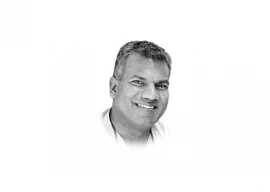
On November 10, a well-known lawyer and activist Hanan Al Barassi was killed in broad daylight in one of the busiest streets of Benghazi, Libya. Al Barassi was renowned for her harsh criticism of the corruption and human rights encroachments in the country through open source media. Moments before she was murdered, she was disparaging (through Facebook live stream) the rampant nepotism in her country, publicly denouncing people she regarded as most fraudulent and at fault for the prevailing disorder.
Kidnappings and killings without accountability are nothing new in Libya. What is derisive is that the latest slaying comes against the backdrop of the Libyan Political Forum meetings in Tunis, under the sponsorship of the UN Support Mission in Libya (UNSMIL). During these consultations it was decided that Libya would have elections in December 2021. However, no transitional government has been named so far and tensions continue to fester due to a constant stand-off between rival administrations around Sirte — the Libyan city which is the postern to the Libyan Oil Crescent, where most of Libya’s oil output takes place.
Libya has a lengthy history of failed peace proposals. The country has been immersed in violence after a NATO-backed revolt overthrew and killed longstanding leader Muammar Gaddafi in 2011. In April 2019, renegade general Khalifa Haftar ordered his troops to usurp the UN-sponsored Government of National Accord (GNA), while retaining control of a parallel governance based in the eastern city of Tobruk. From there on in, Libya has become a battleground for proxy warfare, with Turkey and Qatar supporting the GNA and Russia, and Egypt, UAE, Saudi Arabia and Jordan supporting Haftar.
On October 23 a “permanent ceasefire” was declared. Amid wider expectations that the months-long blockade — enforced by Haftar in an effort to starve the GNA of funds — would be completely lifted, Libya is now back to producing oil. Production has risen sharply in recent weeks, to 300,000 barrels a day in the past month.
So far, truce has been welcomed by countries. While Italy has contributed to the peace process by donating €450,000 to UNDP’s Political Dialogue Programme, on November 20, the US Congress approved the Libyan Stabilisation Act which aims to support negotiation and provide support towards successful realisation of elections. Many have pointed out that this is the least the US could do seeing, as Libya begets memories for what president Obama has called the biggest mistake of US foreign policy during his presidency. Indeed, since the campaign in 2011, Libya has been immersed in chaos and disorder. An early victim of the disarray was of course then US ambassador to Libya Chris Stevens, who was murdered along with three other Americans, before his body was lugged through the streets of Benghazi in 2012.
Although it seems the situation in Libya is progressing away from open hostilities and towards a political process that portends peace, many who believe lawlessness is the median in Libya are skeptical. If Libya is to have a chance for a representative government, the country will have to emphasise on education so that people are not only aware of their rights but also are in a position to defend them, and negotiate through any disparities without the fear of arousing violence. And while all Libyans collectively desire peace, primacies change when regional and cultural fault lines come to the fore. Hence, it is essential to expand the dialogue process and include the most marginalised groups as well as deepen the conversation to include frank exchanges about the dynamics that unite and divide Libyans.
In the end it will all come down to the determination and dedication of those who hold the reins.
Published in The Express Tribune, November 22nd, 2020.
Like Opinion & Editorial on Facebook, follow @ETOpEd on Twitter to receive all updates on all our daily pieces.




1724152318-0/beyonce-(1)1724152318-0-165x106.webp)
1728213758-0/Tribune-Pic-(2)1728213758-0-165x106.webp)








COMMENTS
Comments are moderated and generally will be posted if they are on-topic and not abusive.
For more information, please see our Comments FAQ